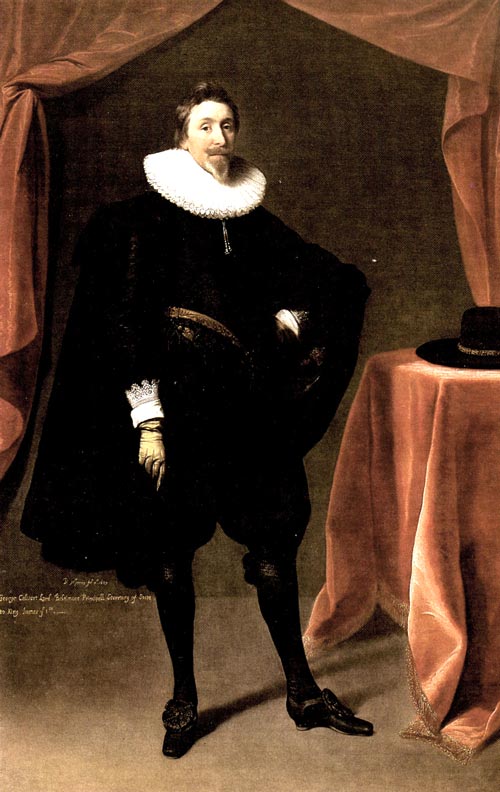The Effects of War on Early Settlement
There was hardly a decade in the 17th century when Newfoundland was safe from the effects of European war, whether directly in the form of open conflict, or indirectly in the form of interruptions to the Mediterranean market for saltfish.
Sir George Calvert, Lord Baltimore, cited the huge expense of fighting the French privateer de la Rade as one of the reasons for abandoning of the Colony of Avalon in 1629. The English Civil War of the 1640s did encourage Newfoundland trade with the recently-founded colonies of New England, but the struggle between the Royalists and Parliamentarians for control of the West Country ports created uncertainty for the fishing trade and consequently for the fledgling settlements of the English Shore. After the Parliamentary victory in 1649, the Newfoundland proprietor Sir David Kirke suffered, as a royalist, first under the Commonwealth and then under the Protectorate of Oliver Cromwell, which soon followed. The Protectorate itself fell into a naval war with the Dutch, which resulted in the loss of many of the ships engaged in the Newfoundland fishery.

War with the Dutch
A second war with the Dutch resulted in an attack on Newfoundland in 1665. The Dutch had a longstanding interest in the region, having run a sack or cargo trade since the late 16th century. Admiral De Ruyter plundered St. John's, although he decided not to follow his orders to burn the town because, he later claimed, of its poverty. In 1673 the third Dutch War prompted a serious attack on Ferryland and other settlements. Archaeological investigation at the site of the Colony of Avalon indicates that the impressive waterfront property at the Pool Plantation was shelled and burned, although houses may have been left standing.
British and French Warfare
The close of the 17th century saw protracted war between Britain and France, wreaking economic and social destruction in the northern colonies between 1688 and 1713. The French attacked Ferryland in 1694, where Captain William Holman organized a successful defence, building a fort uncovered in recent excavations. A force of French-Canadians and Native warriors under de Brouillan and d'Iberville returned in the winter of 1696/97 to devastate most of the English Shore. The war destroyed the native planter gentry, who were taken prisoner and held for ransom at Plaisance (Placentia). Although settlement in most communities was briefly extinguished, planters petitioned for help in returning to their own harbours and settlement was quickly restored. At the same time they had suffered great losses and would suffer again, as open conflict with the French flared in Newfoundland intermittently until the Treaty of Utrecht in 1713.
The destruction of the English Shore at the turn of the 18th century makes Newfoundland's early English settlements look impermanent: they were, after all, suddenly eclipsed. Yet fisher folk from the British Isles occupied dozens of small communities between 1621 and 1696 and built a society whose linkages tied Newfoundland not only to England's West Country and Ireland, but also to New England, the Chesapeake, the West Indies, the Azores, Spain, Portugal, France and the Netherlands. It was, unfortunately, these very linkages which made the island an obvious target in times of war.




